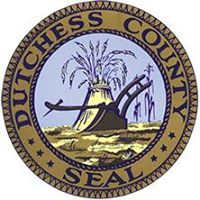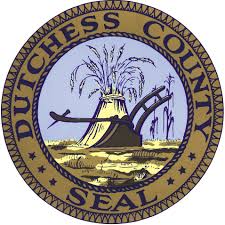
County Offers Grant Opportunity for Historical Sites, Societies and Museums to Cover Capital and Funding Gaps

Poughkeepsie … Dutchess County Executive Marc Molinaro announced applications are now being accepted for the County’s Agency Partner Grant: Historical Sites, Societies & Museums Infrastructure grant program, which addresses critical capital and operating funding gaps that impact the preservation of local historic and cultural institutions.
Capital infrastructure projects are limited to facilities owned by a non-profit, and the facility must be a separate structure; funds cannot be used for improvements to a room used for or by historical societies within a facility owned by another entity. All eligible Dutchess County historical societies or museums, however, can apply for operating infrastructure funds.
The total allocation for this one-time initiative is $200,000, with grants available between $5,000 and $30,000 per institution. Applications for these grants are being accepted through an online portal, and the deadline to apply is Wednesday, July 20th at 4 p.m. Application guidance and instructions are available on the Department of History’s website.
County Executive Molinaro said, “Tourism has long been an economic engine for Dutchess County, and our unique historic sites, museums and cultural centers are attractions that engage both residents and visitors. Our investment in these diverse institutions will not only ensure the history of our heritage remains intact, but also that future guests – be they visitors from around the corner or around the globe – can learn the Dutchess County story.”
Historic sites and museums that are run as non-profits typically rely heavily on membership dues and donations for revenue resulting in revenue streams that are small and unpredictable. The cost for annual maintenance of aging historic sites is significant, and additional upgrades to bring sites up to current accessibility standards create an additional burden on budgets.
Operating infrastructure costs are necessary to provide for the maintenance of artifacts, the provision of programming and the collection of oral histories. These operating costs can be significant and are integral to providing visitors with a full educational experience yet historic sites and museums struggle to fund these efforts.
County Historian Will Tatum said, “Dutchess County’s rich heritage is well documented in countless museums and historical sites throughout our community, and these assets are troves of knowledge for residents and visitors alike who wish to gain a greater understanding of our unique history. These invaluable resources, though, require upkeep that can often be a financial hardship. Dutchess County is proud to offer this grant opportunity to protect these vital repositories so their information can be preserved for future generations.”
A capital infrastructure project helps maintain or improve an organization’s assets, such as a renovation, replacement, or expansion of an existing facility. Targeted investments include renovations or expansions of existing space used for direct programming, as well as investments in the organization’s overall facilities to ensure the health and safety of its visitors. Examples include:
- General capital infrastructure to facilities, including physical structures (roof, windows, doors, etc.), HVAC, plumbing, electrical, security, furniture, fixtures and equipment.
- Americans with Disabilities Act (ADA) Improvements to promote accessibility and communication to ensure those with disabilities have an equal opportunity to participate in a specific activity.
Operating infrastructure funding supports the necessary tools, networks and systems that ensure the organization’s mission is protected and strengthened, including activities that reinforce the organization’s capacity and compliance with existing legal, regulatory and financial reporting requirements. Examples include:
- Equipment, supplies, or other one-time expenses (e.g., projectors, microphones, scanners, speaker systems, computers, e-books, pop-up event/program, display cases, signage boards, etc.) purchased within the term of the agreement.
- Information technology upgrades (e.g., phone systems, websites, accounting, donor development, case management software, replacement of antiquated computers and other related hardware, etc.)
Ineligible expenses include ongoing operating expenses, ongoing program expenses, restoring fund balance or reserve accounts and fundraising.
Legislator Steve Caswell said, “Residents of every age can learn about how Dutchess County came to be at our varied museums and historic sites. I’m proud to have proposed this great use of County resources to ensure all who are interested in learning about Dutchess County’s history can do so, and I thank my legislative colleagues who supported this initiative.”
All applications will be reviewed for eligibility by the Dutchess County Department of Planning and Development with final funding approval recommendations made by the County Executive. Grant awards will be announced in September 2022.
Legislator Joseph D. Cavaccini said, “Our residents and visitors can glean so much about our county by studying its history, and I’m pleased to support this grant opportunity to assure these vital resources can continue to operate without interruption to the benefit of so many who use them.”
In December 2021, County Executive Molinaro announced $1.5 million in APG awards to fund 34 programs in 2022, with a focus on youth development, homelessness prevention, workforce development, mental health and wellness, and literacy programs, among other critical needs.
